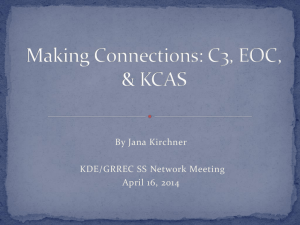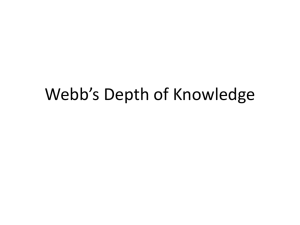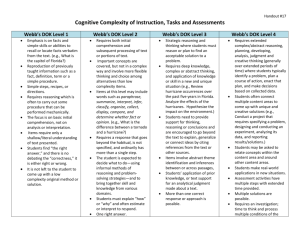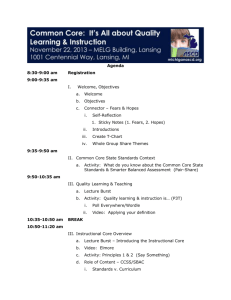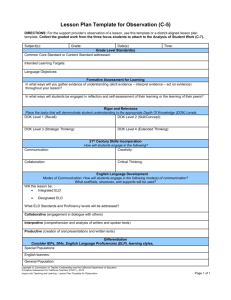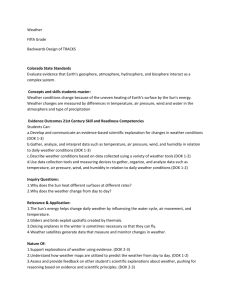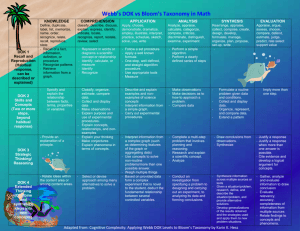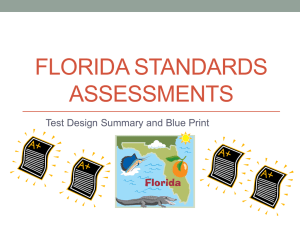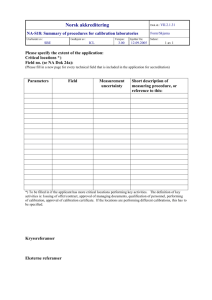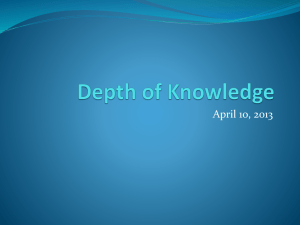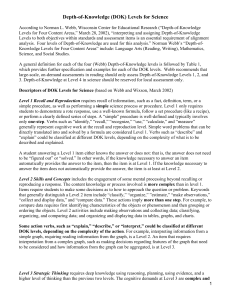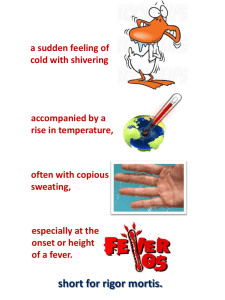Depth of Knowledge
advertisement
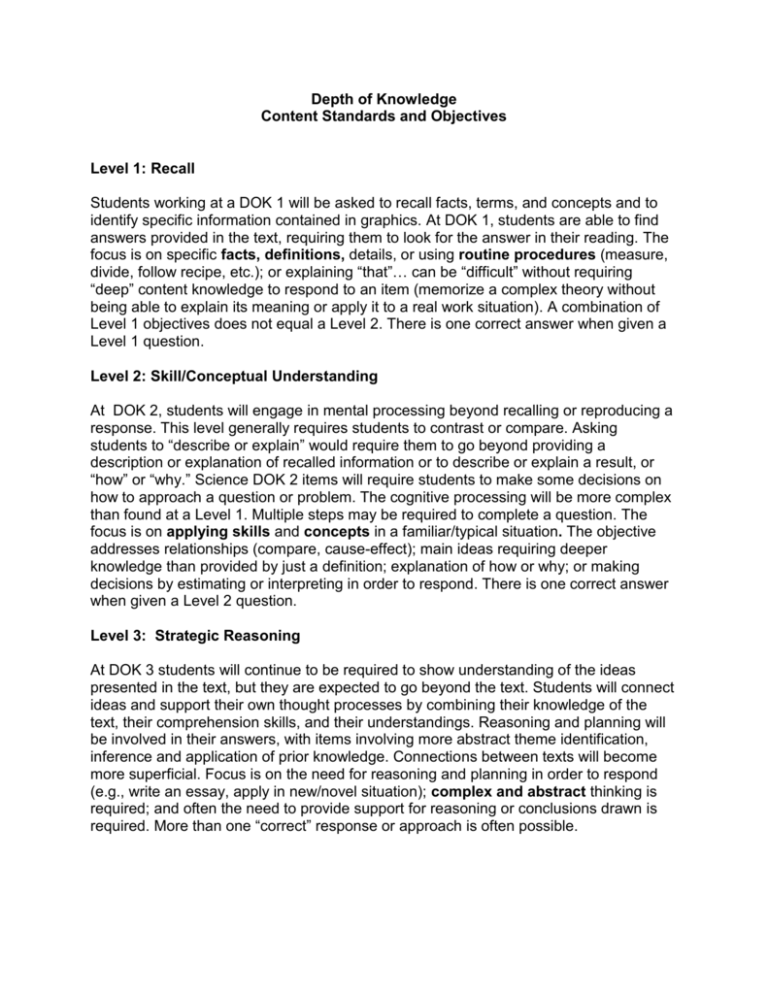
Depth of Knowledge Content Standards and Objectives Level 1: Recall Students working at a DOK 1 will be asked to recall facts, terms, and concepts and to identify specific information contained in graphics. At DOK 1, students are able to find answers provided in the text, requiring them to look for the answer in their reading. The focus is on specific facts, definitions, details, or using routine procedures (measure, divide, follow recipe, etc.); or explaining “that”… can be “difficult” without requiring “deep” content knowledge to respond to an item (memorize a complex theory without being able to explain its meaning or apply it to a real work situation). A combination of Level 1 objectives does not equal a Level 2. There is one correct answer when given a Level 1 question. Level 2: Skill/Conceptual Understanding At DOK 2, students will engage in mental processing beyond recalling or reproducing a response. This level generally requires students to contrast or compare. Asking students to “describe or explain” would require them to go beyond providing a description or explanation of recalled information or to describe or explain a result, or “how” or “why.” Science DOK 2 items will require students to make some decisions on how to approach a question or problem. The cognitive processing will be more complex than found at a Level 1. Multiple steps may be required to complete a question. The focus is on applying skills and concepts in a familiar/typical situation. The objective addresses relationships (compare, cause-effect); main ideas requiring deeper knowledge than provided by just a definition; explanation of how or why; or making decisions by estimating or interpreting in order to respond. There is one correct answer when given a Level 2 question. Level 3: Strategic Reasoning At DOK 3 students will continue to be required to show understanding of the ideas presented in the text, but they are expected to go beyond the text. Students will connect ideas and support their own thought processes by combining their knowledge of the text, their comprehension skills, and their understandings. Reasoning and planning will be involved in their answers, with items involving more abstract theme identification, inference and application of prior knowledge. Connections between texts will become more superficial. Focus is on the need for reasoning and planning in order to respond (e.g., write an essay, apply in new/novel situation); complex and abstract thinking is required; and often the need to provide support for reasoning or conclusions drawn is required. More than one “correct” response or approach is often possible. Level 4: Extended Reasoning At DOK 4, students may be asked to take information from a variety of sources and apply the information to a new task. They may be expected to develop a thesis statement and do the research necessary to support their position. DOK 4 activities may extend beyond the boundaries of a specific content area, requiring students to connect and relate ideas and concepts within and among content areas in order to be successful at this highest level of cognitive demand. Students of science may be asked to apply complex reasoning or experimental design and planning, often over an extended period of time. There are high cognitive demands at DOK 4 requiring very complex thought processes. Level 4 requires complex reasoning, planning, and thinking, generally over extended periods of time, in order for the investigation to be completed or multiple steps in order to respond to the assessment item. Students may be asked to relate concepts within the content area and among other content areas or to real-world applications in new situations.
